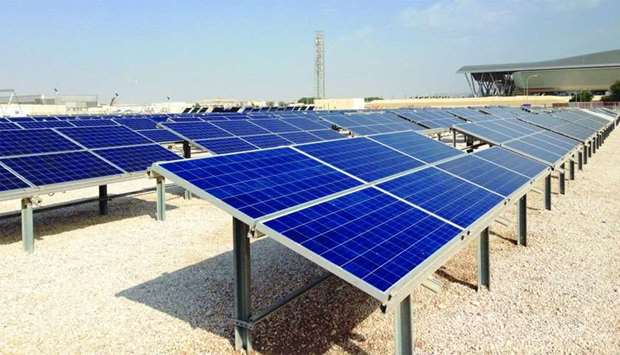Qatar Environment and Energy Research Institute (Qeeri), part of Hamad Bin Khalifa University (HBKU) has signed a Memorandum of Understanding (MoU) with the Photovoltaic Collaborative to Advance Multiclimate Performance and Energy Research (PVCAMPER) international research group. The consortium aims to understand climate-related impact on solar photovoltaic equipment.
PVCAMPER is committed to sharing high-fidelity meteorological and performance data to advance photovoltaic (PV) research and expand solar markets. As a member of the group, Qeeri joins an integral global platform for evaluating emerging, high-efficiency PV technologies and studying factors that contribute to climate-specific efficiencies.
Dr Marc Vermeersch, executive director, Qeeri, said, “We are honoured to be part of the PVCAMPER community, which aligns with Qeeri’s mandate to support Qatar in its objectives to become a leader in renewable energy research. The partnership positions us among prominent institutions around the world, and enables us to engage in knowledge exchange while building capacity in energy research that will accelerate a global transition towards a solar-intensive future.”
The MoU will see members adopt common research protocols and pool their test data, creating what will become one of the world’s largest and most useful databases of comparable PV performance data. Members will also collaborate on research projects, focusing on topics such as PV soiling and irradiation measurement.
Dr Benjamin Figgis, research programme manager, Qeeri Outdoor Test Facility, said, “Being part of PVCAMPER helps showcase the data Qeeri gathers through its Outdoor Test Facility, and affords us an opportunity to compare our results with data gathered from other test sites around the world. The participating members have broad expertise in PV research areas including soiling losses, climate-related PV efficiency factors, and spectral response. The collective data will support the design and optimisation of PV systems for specific operating environments, helping accelerate the development and deployment of solar energy in Qatar.”
Members of the consortium include: National Technology and Engineering Solutions of Sandia LLC, United States; Yeungnam University, South Korea; Anhalt University of Applied Sciences, Germany; The Institut de Recherche en Energie Solaire et Energies Nouvelles, Morocco; Fraunhofer Centre for Silicon Photovoltaics, Germany; Korea Institute of Energy Research; Korea Testing Laboratory; Solar Energy Research Institute of Singapore; and Universidade Federal de Santa Catarina, Brazil.
Qeeri actively pursues partnerships with top-tier local and international partners to build on its expertise and research capacity to solve Qatar’s challenges relating to water, energy and environment.

